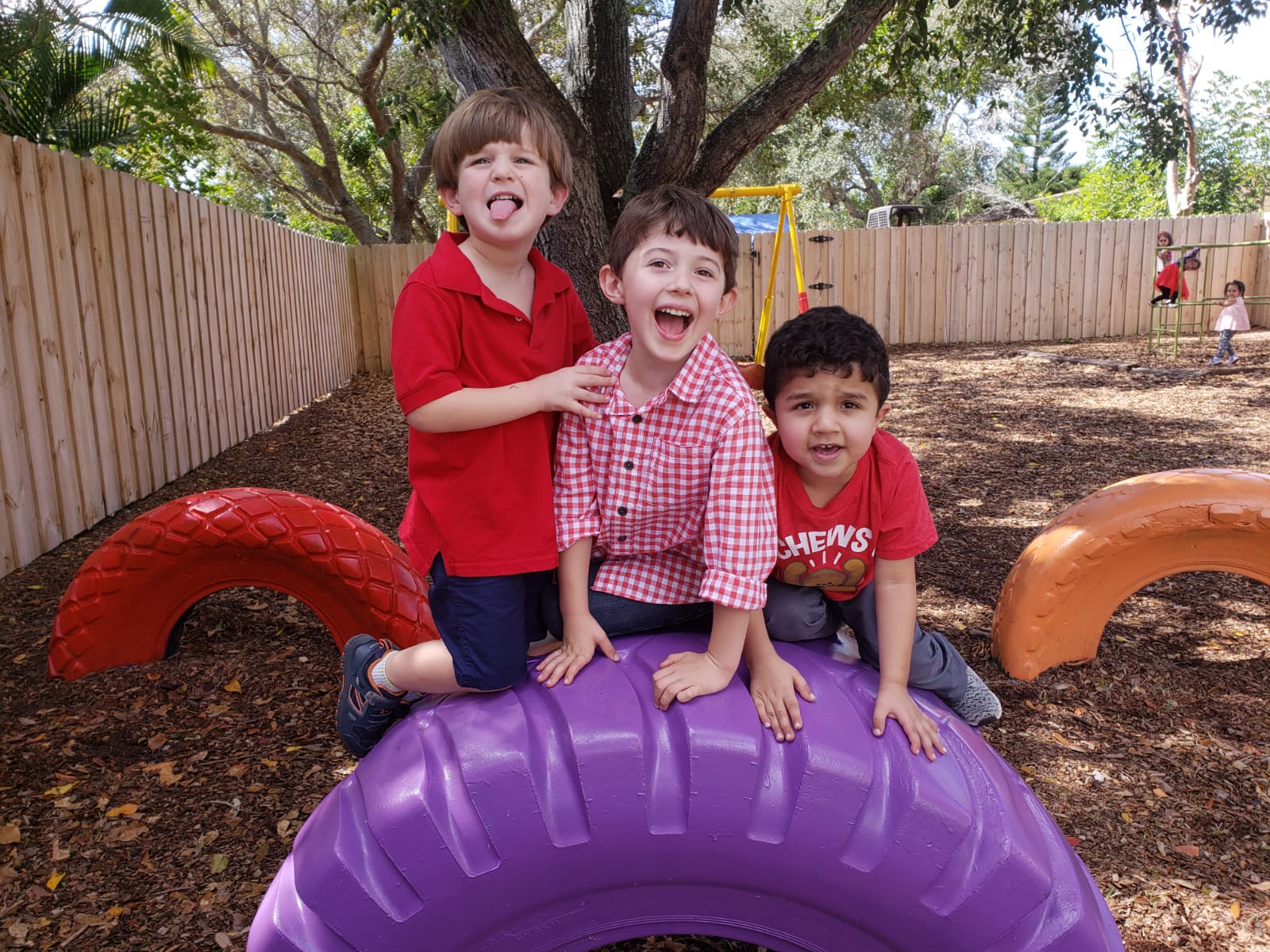Montessori Philosophy
The relationship is the foundation
The Montessori philosophy is solely centered on providing the child with a high-quality environment that comes only second to their home. Similar to their home where there will be an abundance of love, respect, and care for their community. Treating each child with love and respect enables the child to trust their teachers. This relationship is the foundation of the learning process.
Our promise to you is to help your child develop a great sense of responsibility, order, respect, independence, and self-esteem. Creativity flourishes in an atmosphere of acceptance and trust. These traits will be what will allow your child to meet any opportunities with success.
Inside the Montessori philosophy, you will come to observe the following:
Life Long Qualities
When you step into a Montessori environment the first thing you notice is the peace and tranquility held by the children in the environment. From the minute they step through our doors, they are shown respect. Not only respect for themselves but respect for their environment and for all living things on earth. Guides treat the children as if they were adults, with simple actions such as always bending down to their level, making eye contact, always keeping a calm composure and tone of voice.
Perhaps one of the most important qualities they will acquire will be independence through self-correction and self-directed activities. From the moment of birth onwards, humans strive towards independence. Children feel this need very strongly; they want to do things for themselves and to participate in the world around them. We help to foster independence through practical, social and intellectual experiences. The child becomes an active agent in her own education, saying, “Help me help myself”.
Children are natural learners
“Education is a natural process carried out by the child and is not acquired by listening to words but by experiences in the environment.” ~ Dr. Maria Montessori
“What I hear, I forget. What I see, I remember. What I do, I understand.” Confucius
As soon as you enter a new environment, you can see that your child is naturally attracted to many of the things near to him/her. They want to touch, feel, play, get dirty, get wet, it is as if they see something we as adults have unfortunately lost. Maria Montessori realized this through her observations early on, children are the happiest when they are able to explore and discover the world around them. We fill our rooms with materials and lessons that are beautiful, attractive, educational and interesting to their eye. In our Montessori environments, we work to keep this flame of love for learning alive.
Freedom within limits
“To let the child do as he likes when he has not yet developed any powers of control is to betray the idea of freedom.” Maria Montessori, The Absorbent Mind
A child must be free to explore, discover and learn. It is not the job of the guide to make the child adhere to her expectations, rather than to teach the child how to work within the limits set in the environment. Through freedom within limits, the child can develop independence and self-confidence as well as respect for both him- or herself and others. For example, children are free to choose their activities as long as they’ve been shown a presentation of the work and they use the materials respectfully. Freedom of movement will create a safe haven for children to display their individuality in their social setting, in their projects and their daily activities. It will also have taught the child inner discipline, not because they are conforming to the teacher’s rules, but because they learned it through their own experience.

Sensitive Periods
Simply explained, a sensitive period is a period of time where there is an open window of opportunity. It is a time where certain experiences have a greater impact on certain areas of the development of the child. During this time, the child’s brain is more likely to strengthen important connections and exclude any information that is not relevant to the child at that particular moment.
The eleven sensitive periods occurring from birth through the age of six:
- Movement:
- Where movements were once random and unbalanced, are now coordinated and controlled: i.e. grasping. touching, turning, balancing, crawling, walking. (birth – 1)
- Small Objects:
- Children become fixated on small objects and tiny details. (1- 4)
- Expressive Language
- Communication: progress from babbling to words to phrases to sentences. Vocabulary and comprehension continue to expand according to the exposure of language and experiences (birth to 6)
- Mathematics
- Formation of the concepts of quantity and operations (addition, subtraction, multiplication, and division) they begin to move from the concrete to the abstract method. (birth to 6)
- Order
- A period with a strong desire for consistency and repetition. An unprecedented love for consistency, routine and order. During this time then you will begin to see the child become extremely bothered by disorder and chaos. Is it crucial that the environment is carefully organized, a place designated for each lesson, and daily rules are followed. (ages 2 – 4)
- Refinement on the Senses
- The child works to perfect his or her five senses (taste, sound, touch, weight, smell, vision) through sensorial lessons, children quickly refine sensorial discriminations. (2- 6)
- Grace and Courtesy
- Children adopt a unique sensitivity to politeness, care for others and their environment, they begin to contribute to their environment in positive ways (2- 6)
- Writing
- The child becomes extremely interested in letters and numerals. They attempt to replicate these symbols with pencil and paper. (3- 4)
- Reading
- Developing interest in the symbolic representations of the sounds of each letter and the words they form. (3- 5)
- Spatial Relationships
- The child becomes aware of oneself in space. They begin to understand the concept of position, familiar places, etc. (4 – 6)
Community
Our work would go unnoticed if our children did not learn a great sense of community. Our children learn how to care for each other, as they create a family setting with sibling-type relationships. They learn how to be productive members of our society. For this reason, Montessori holds multi-age classrooms. We begin with il Nido ages (0-1), toddlers (1-3) and Primary (3-6). Montessori believed that children learned best by observing each other. In our environments, our little Montessorians acquire motivation, as they work on lessons observed from the older ones, and our older children are able to reinforce their lessons by helping the younger children. They allow for the development of self- esteem since the child is in the same classroom for a span of 2-3 years and knows the expectations and their peers.
